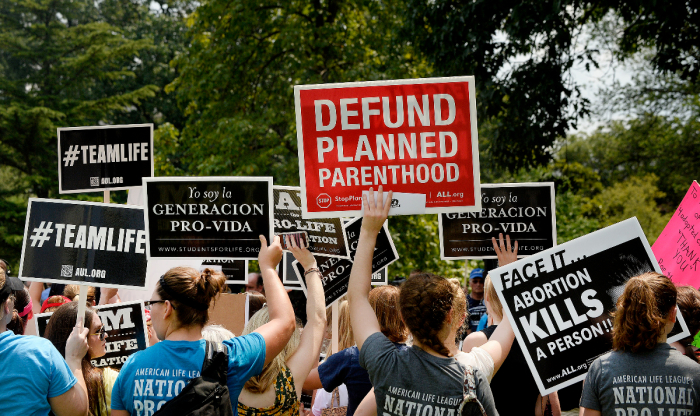
The U.S. Supreme Court has ruled that states can ban Planned Parenthood from their Medicaid programs, reversing an earlier appeals court ruling against South Carolina’s bid to defund the nation’s largest abortion provider.
The high court released its opinion in the case of Medina v. Planned Parenthood on Thursday morning, ruling 6-3 that federal law does not stop the Palmetto State from banning abortion providers from Medicaid.
Justice Neil Gorsuch authored the majority opinion, being joined by Chief Justice John Roberts and Justices Clarence Thomas, Samuel Alito, Brett Kavanaugh and Amy Coney Barrett.
“To prove that a statute secures an enforceable right, privilege, or immunity, and does not just provide a benefit or protect an interest, a plaintiff must show that the law in question ‘clear[ly] and unambiguous[ly]’ uses ‘rights-creating terms,'” wrote Gorsuch.
“After announcing that state Medicaid plans must allow individuals to obtain care from any qualified provider, the provision proceeds to carve out various exceptions to that rule. … Neither paragraph [in the statute] uses clear and unambiguous rights-creating language, so neither supports a private suit under [42 United States Code §1983].”
Gorsuch also wrote that there is a “longstanding line between mere benefits and enforceable rights” and that it is up to Congress to provide states with “clear and unambiguous notice of an individually enforceable right.”
Justice Ketanji Brown Jackson authored a dissenting opinion, joined by Justices Sonia Sotomayor and Elena Kagan, writing that “under a faithful application of our unambiguous-conferral test, the Medicaid Act’s free-choice-of-provider provision readily creates an enforceable right.”
“To prevent States from interfering with Medicaid recipients’ freedom to choose their own providers, Congress adopted nearly identical language from a provision of the Medicare Act that — in both purpose and effect — had guaranteed that right to Medicare beneficiaries,” Jackson added.
“Congress made a deliberate choice to protect Medicaid recipients’ ability to choose their own providers by employing statutory language that it knew, based on its Medicare experience, would achieve that end. Congress’s intent could not have been clearer.”
In 2018, South Carolina Gov. Henry McMaster gave an order to the state’s Department of Health and Human Services to end Medicaid agreements with any abortion providers.
Planned Parenthood, which operated two facilities in the state, filed a lawsuit along with a patient, with a federal district court blocking state enforcement of the order.
In March 2024, a three-judge panel of the 4th U.S. Circuit Court of Appeals unanimously upheld the lower court decision, with Circuit Judge Harvie Wilkinson, a Reagan appointee, authoring the opinion.
“This case is, and always has been, about whether Congress conferred an individually enforceable right for Medicaid beneficiaries to freely choose their healthcare provider,” wrote Wilkinson.
“Preserving access to Planned Parenthood and other providers means preserving an affordable choice and quality care for an untold number of mothers and infants in South Carolina.”
In a miscellaneous order released last December, the Supreme Court agreed without comment to grant a petition for a writ of certiorari in the case, then known as Kerr v. Planned Parenthood South Atlantic.
The arguments were to focus on question 1 of the petition, which asked the high court to determine if “the Medicaid Act’s any-qualified provider provision unambiguously confers a private right upon a Medicaid beneficiary to choose a specific provider.”















